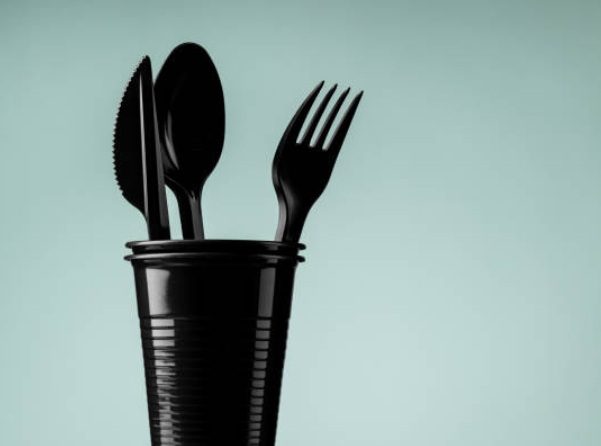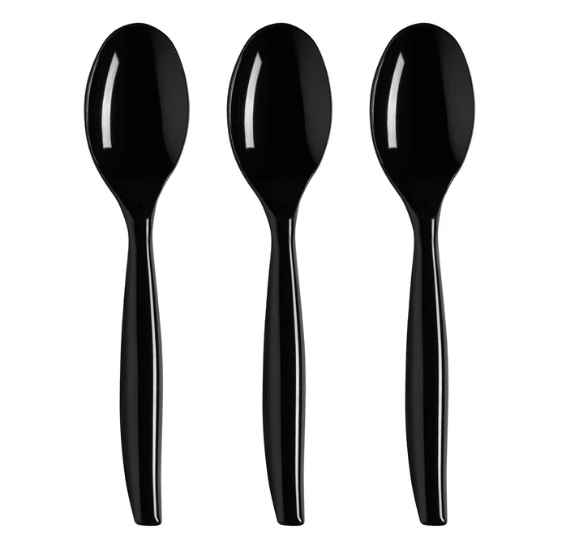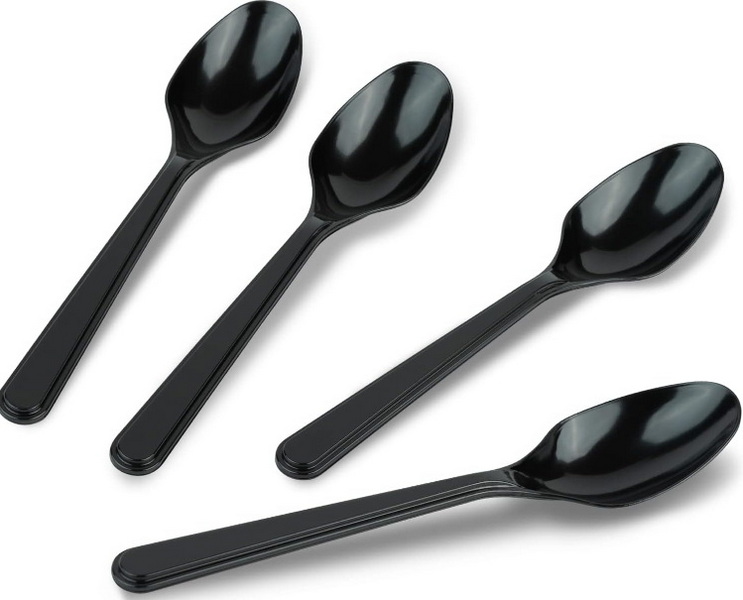
Content Menu
● Introduction to Disposable Utensils
>> Environmental Impact
● Recycling Challenges
>> Technical Difficulties
>> Black Plastic Specific Issues
● Reuse and Alternatives
>> Reuse
>> Alternatives
● Health Concerns
● Economic Impact
● Policy and Regulation
● Public Awareness and Education
● Innovations in Recycling Technology
● Conclusion
● Frequently Asked Questions
>> 1. Can Black Disposable Spoons Be Recycled?
>> 2. What Are the Environmental Impacts of Disposable Plastic Utensils?
>> 3. Are Black Plastic Utensils Safe for Use?
>> 4. What Alternatives Are Available to Disposable Plastic Spoons?
>> 5. How Can I Reduce My Use of Disposable Plastic Utensils?
The use of disposable utensils, including black disposable spoons, has become a common practice in many parts of the world. These utensils are often made from plastic and are used once before being discarded. However, the environmental impact of these disposable items is significant, contributing to plastic pollution and waste management challenges. In this article, we will explore whether black disposable spoons can be recycled or reused, and discuss the environmental implications of their use.

Introduction to Disposable Utensils
Disposable utensils, such as plastic forks, knives, and spoons, are widely used in restaurants, events, and households due to their convenience. However, their disposal poses significant environmental challenges. Billions of these items end up in landfills and oceans each year, exacerbating plastic pollution and harming marine life.
Environmental Impact
The environmental impact of disposable plastic utensils is multifaceted:
- Pollution: Plastic waste, including disposable utensils, contributes to pollution in oceans and landfills. These items are non-biodegradable and can take centuries to decompose.
- Resource Consumption: The production of plastic utensils requires significant amounts of fossil fuels and energy.
- Health Risks: Some studies suggest that certain chemicals in plastic can leach into food, potentially posing health risks.
Recycling Challenges
Recycling plastic utensils, including black disposable spoons, faces several challenges:
Technical Difficulties
1. Sorting: Plastic utensils are often too small to be sorted efficiently by automated recycling systems. They may not be recognized by infrared scanners used in recycling facilities.
2. Material Type: Disposable utensils are typically made from types of plastic that are not widely accepted in curbside recycling programs. For example, polystyrene (PS) and polypropylene (PP) are common materials but may not be recyclable in all areas.
Black Plastic Specific Issues
Black plastic, in particular, poses additional recycling challenges:
- Invisibility to Scanners: Black plastic is often dyed with carbon black, which makes it invisible to the near-infrared scanners used in recycling facilities. This means that even if black plastic is recyclable, it may not be sorted correctly.
- Toxic Chemicals: Some black plastic items, including utensils, may contain toxic chemicals like flame retardants from recycled electronics. This can make them unsafe for recycling and reuse.
Reuse and Alternatives
Given the recycling challenges, reusing or finding alternatives to disposable black spoons is a more sustainable approach:
Reuse
While disposable utensils are designed for single use, some can be cleaned and reused if they are made from durable materials. However, this is not common practice for black plastic spoons due to their material composition and potential health risks.
Alternatives
1. Biodegradable Options: Compostable spoons made from materials like cornstarch or sugarcane are becoming more popular. These can reduce plastic waste and are safer for the environment.
2. Reusable Utensils: Switching to reusable utensils made from stainless steel, wood, or bamboo can significantly reduce waste. These materials are durable and can be used multiple times.
Health Concerns
Recent studies have highlighted health concerns associated with black plastic utensils:
- Flame Retardants: Some black plastic items contain flame retardants, which can leach into food, especially when heated. These chemicals have been linked to health risks such as hormonal disruptions and cancer.
- Recommendations: Experts recommend replacing black plastic utensils with safer alternatives like stainless steel or silicone to minimize exposure to potential toxins.

Economic Impact
The economic impact of disposable plastic utensils is also noteworthy:
- Production Costs: While the production of disposable plastic utensils is relatively cheap, the long-term costs associated with waste management and environmental damage are significant.
- Market Trends: There is a growing market for sustainable alternatives, which can create economic opportunities for companies that invest in eco-friendly products.
Policy and Regulation
Governments and organizations are beginning to address the issue of plastic waste through policy and regulation:
- Bans on Single-Use Plastics: Many countries and cities have implemented bans on single-use plastics, including utensils, to reduce waste.
- Extended Producer Responsibility: Some policies require manufacturers to take responsibility for the waste generated by their products, encouraging them to design more sustainable packaging.
Public Awareness and Education
Public awareness and education play a crucial role in reducing the use of disposable plastic utensils:
- Campaigns: Public campaigns can raise awareness about the environmental impacts of disposable plastics and promote the use of alternatives.
- School Programs: Educating children about sustainable practices can help build a culture of environmental responsibility.
Innovations in Recycling Technology
Advancements in recycling technology may offer solutions to the challenges faced by black plastic recycling:
- Advanced Sorting Systems: New technologies are being developed to improve the sorting of black plastics, potentially making them more recyclable.
- Chemical Recycling: Chemical recycling processes can break down plastics into their raw materials, which can then be used to make new products.
Conclusion
In conclusion, while black disposable spoons can technically be recycled, the process is fraught with challenges due to their material composition and the difficulty in sorting them. The environmental and health concerns associated with these items suggest that transitioning to biodegradable or reusable alternatives is a more sustainable approach. By choosing safer and more environmentally friendly options, we can reduce plastic pollution and mitigate the risks associated with disposable plastic utensils.

Frequently Asked Questions
1. Can Black Disposable Spoons Be Recycled?
Black disposable spoons can be recycled in theory, but they often end up in landfills due to difficulties in sorting and processing. The use of carbon black dye makes them invisible to infrared scanners used in recycling facilities.
2. What Are the Environmental Impacts of Disposable Plastic Utensils?
Disposable plastic utensils contribute significantly to plastic pollution, harming marine life and ecosystems. They are non-biodegradable and require large amounts of fossil fuels for production.
3. Are Black Plastic Utensils Safe for Use?
Some black plastic utensils may contain toxic chemicals like flame retardants, which can leach into food, especially when heated. This poses potential health risks, including hormonal disruptions and cancer.
4. What Alternatives Are Available to Disposable Plastic Spoons?
Alternatives include biodegradable spoons made from plant-based materials and reusable utensils made from stainless steel, wood, or bamboo. These options reduce plastic waste and are safer for the environment.
5. How Can I Reduce My Use of Disposable Plastic Utensils?
You can reduce your use of disposable plastic utensils by choosing reusable options for personal use and advocating for their use in restaurants and events. Additionally, supporting policies that promote sustainable packaging can help reduce plastic waste on a larger scale.

















